In this time of pandemic, we need to help feed those who feed us
April 2020
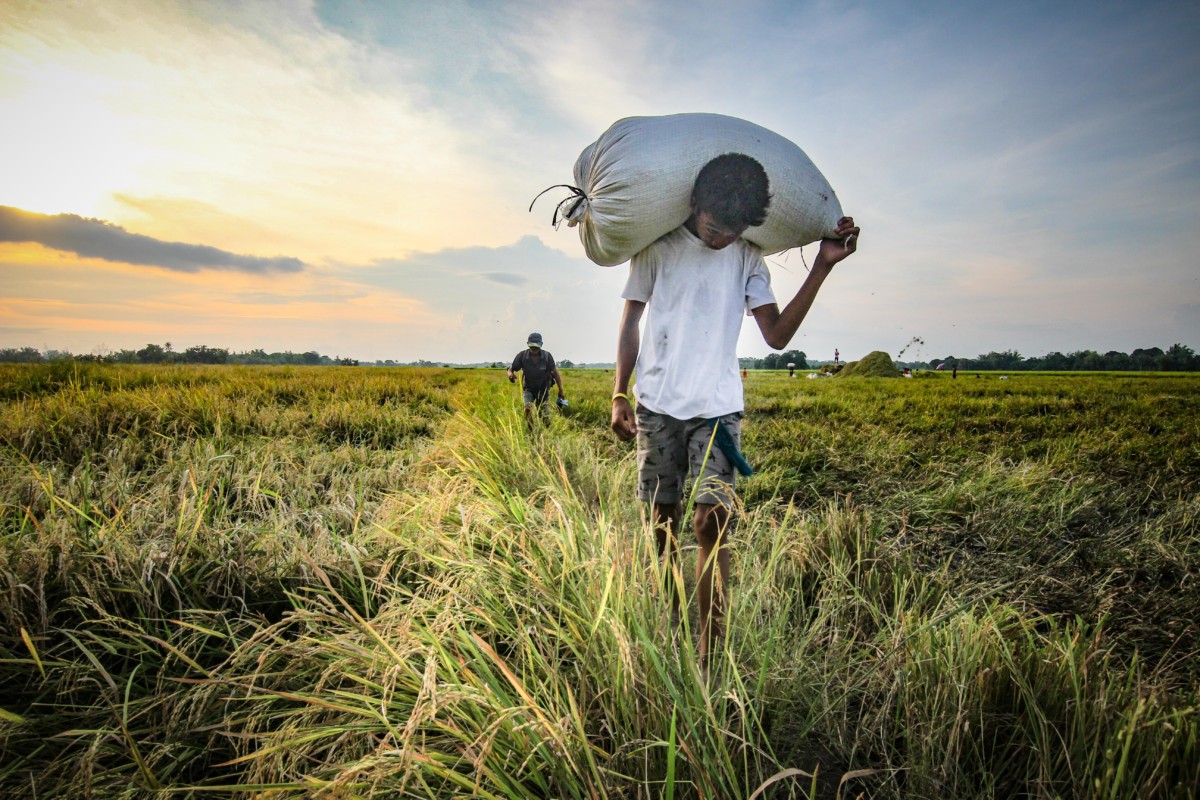
A farmer carries a sack of rice across his shoulders. Those working in the food and agriculture sector are faced with many changes in their livelihoods with the onset of the COVID-19 pandemic. Photograph © Alo Lantin / WWF-Philippines
A pandemic has taken the world by surprise. COVID-19, a viral disease caused by a newly-discovered species of coronavirus, has torn across countries, growing over the past few months into a global pandemic. In response, governments have turned to many different measures – from stringent testing and contact tracing in South Korea and Singapore, to the complete lockdown of whole cities in China and the Philippines.
Life as we know it has begun to change as the world adjusts to life in this time of pandemic. As things start to settle, however, all-new issues have begun to crop up, putting many communities further at risk. Among the biggest challenges facing the country right now is feeding a population quarantined inside their houses.
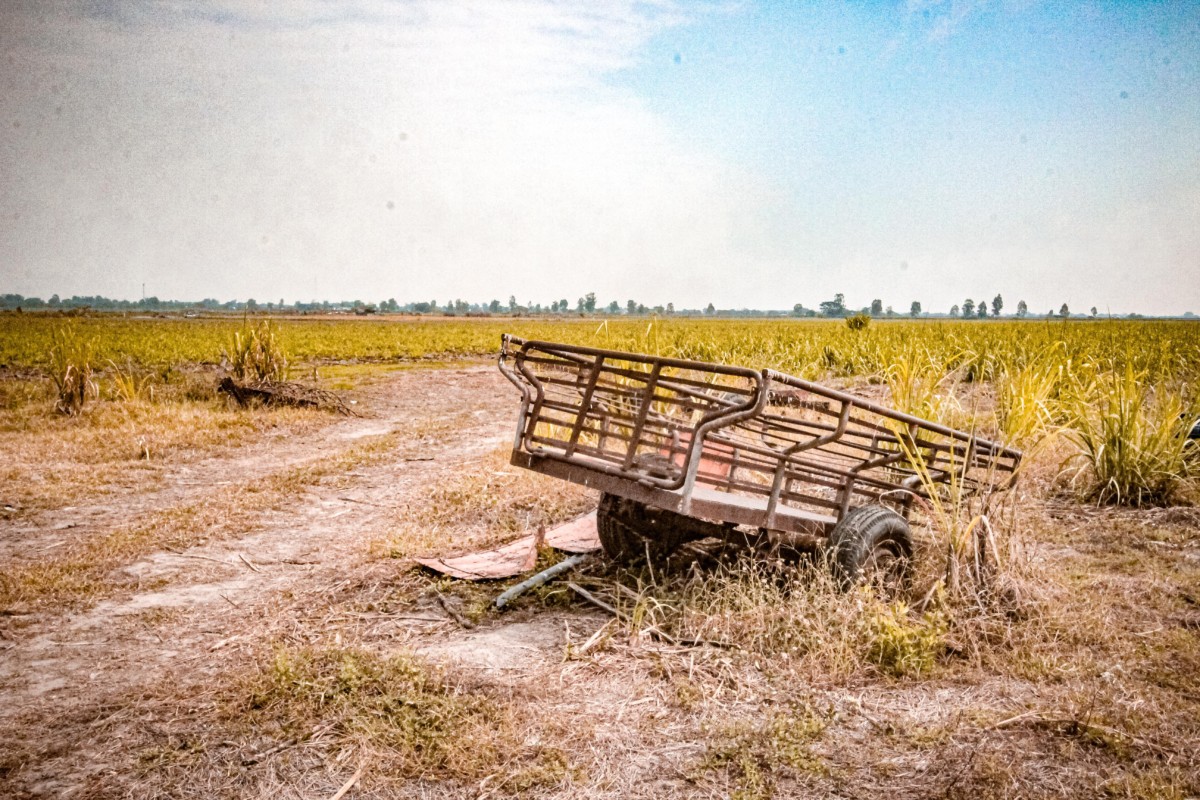
A wheelbarrow sits unattended in the middle of a field. The Philippines has suffered with food shortages for many years. Photograph © Alo Lantin / WWF-Philippines
The Philippines has suffered with food shortages for many years. 2 out of every 5 Filipinos are considered food poor, which means they lack access to nutritious food. With over 100 million mouths to feed, the agriculture and fisheries sectors have always been under immense pressure – but with the pandemic, things have gotten much harder.
“COVID-19 is seriously affecting our food systems. We can’t bring safe, affordable, and nutritious food to where it needs to go anymore. We’re seeing disruptions in delivery systems, a lack of a work force, and whole sorts of food accessibility challenges,” said Monci Hinay, WWF-Philippines’ Sustainable Food Systems Project Manager. An advocate of food accessibility, Hinay is worried that the current situation will see ripple effects that could leave the Philippines in worse trouble than it already is in.
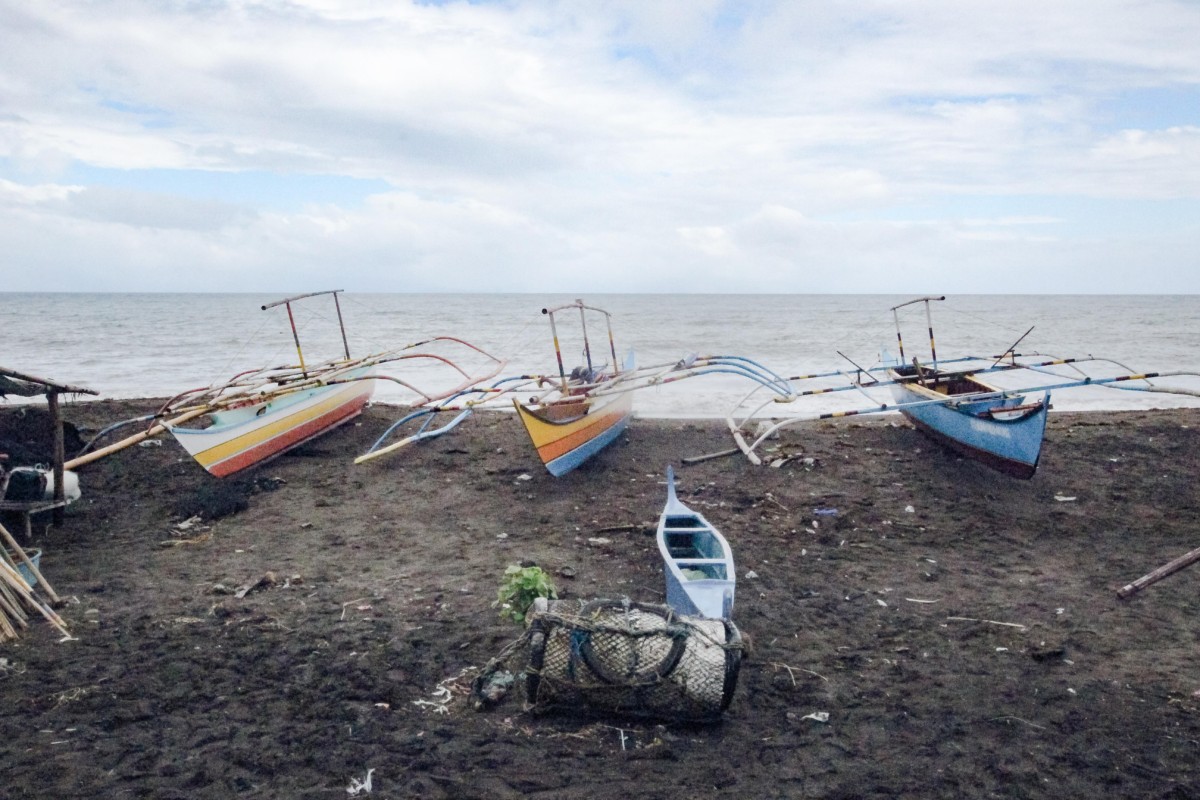
Boats sit on the shores of Tiwi, Bicol. As fisherfolk run out of income, they lose the basic capital needed to produce food. Photograph © Alo Lantin / WWF-Philippines
“This isn’t just a problem for us, but for those in the food sector, too. We’re seeing a lack of income for those working in the food and agriculture sector,” continued Hinay. As we continue further into the nationwide lockdown, human movement across the country has stopped. As worried consumers turn to canned and processed food instead of looking for what’s fresh from the farms and wet markets, incomes have begun to dry up for small-scale farmers and fishermen.
“If us fisherfolk already had a hard time with our lack of earnings, what more now? The community quarantine has limited our markets. We aren’t able to sell our catches any more. Many of us aren’t even taking to the sea anymore, since all we’re doing is wasting our money,” said Atenogenes Reaso, Gulf of Lagonoy Tuna Fishers Federation, Inc. President. Only a week into the lockdown, many of the fisherfolk under the watch of Reaso are enduring terrible blows to their livelihoods. Their outlook on the future is likewise grim.
“If this carries on, us fisherfolk will earn nothing. Hunger – that’s what will get us,” added Reaso. Should things continue as they have been, we could be faced with a collapse of our countries’ food systems. As producers run out of money, their ability to produce food will lessen. Eventually they won’t be able to produce food at all, which will become a great problem for those living in the cities. With food producers unable to make food, markets will collapse and the Philippines might spiral further into a nationwide food crisis.
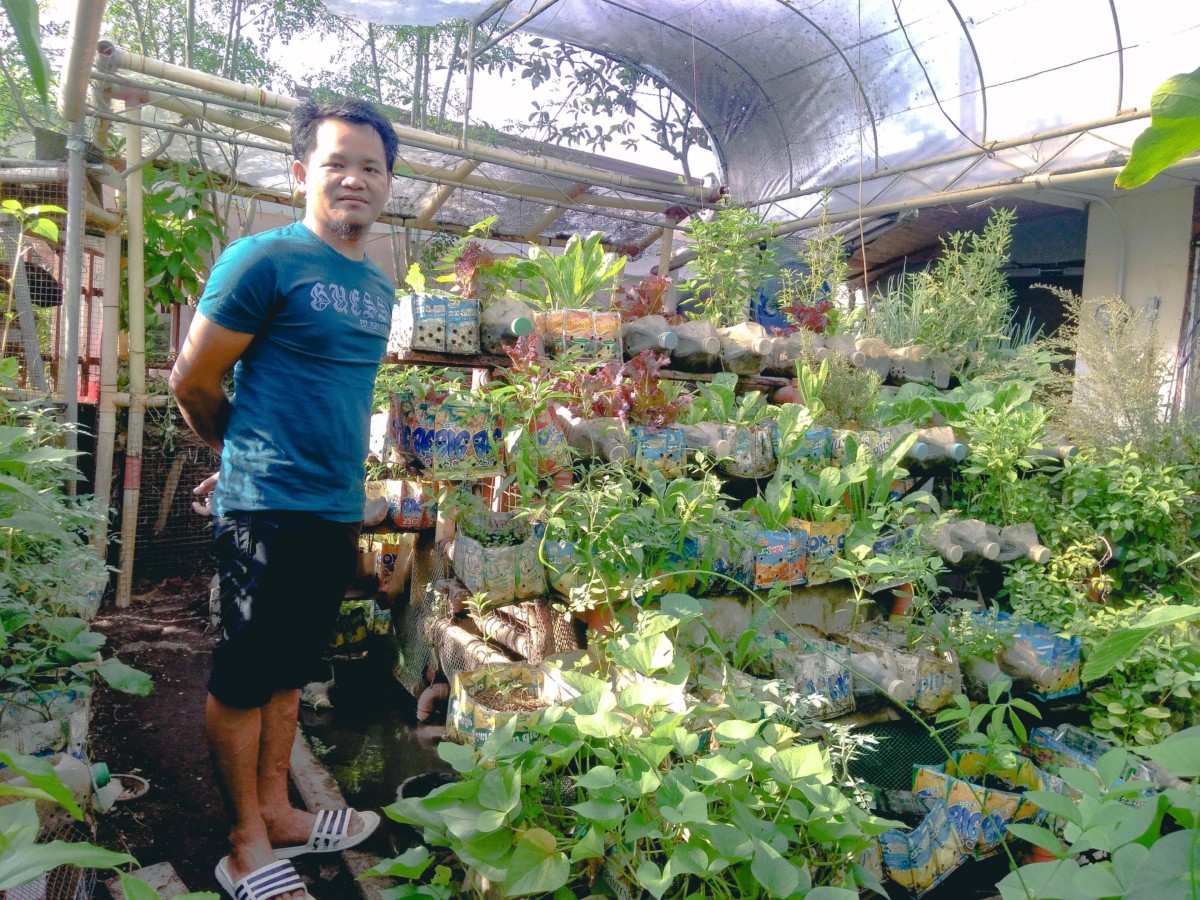
A man stands next to an urban container garden, growing in a suburb in Mindanao. Solutions that bring farmland closer to consumers are one of many ways our food problems are being addressed. Photograph © WWF-Philippines
The weight of the current pandemic grows with each passing day. Despite the odds, though, many cling to a hope that the Philippines will be able to tide over the current crisis.
“Everything’s connected. We need to address the pandemic, that much is obvious. But we can’t let our food sector go neglected,” explained Hinay. In order to address our growing food problems, Hinay suggested the following solutions:
- Focusing on building household resiliency through home food production. Urban gardens, he explained, can keep a household fed without the need to spend money,
- Local government units extending help to farmers and fisherfolk, through financial support and by purchasing what products they are unable to sell, and
- Building alternate market systems, to keep farmers connected to consumers. The use of mobile apps and e-commerce could help keep farmers earning and consumers well-fed.
The solutions posed by Hinay are just some of the ways that we can help address the current situation. Many groups have begun mobilizing online and in the public sphere, in order to bring food to the cities and income to the province. The game, explains Hinay, is to keep the country running as normally as possible, no matter how grave the crisis may get. “What we need now is just a little bit of money to pay for daily needs, like rice, to pass the hunger. We need to eat while we wait for this lockdown to end,” added Reaso.
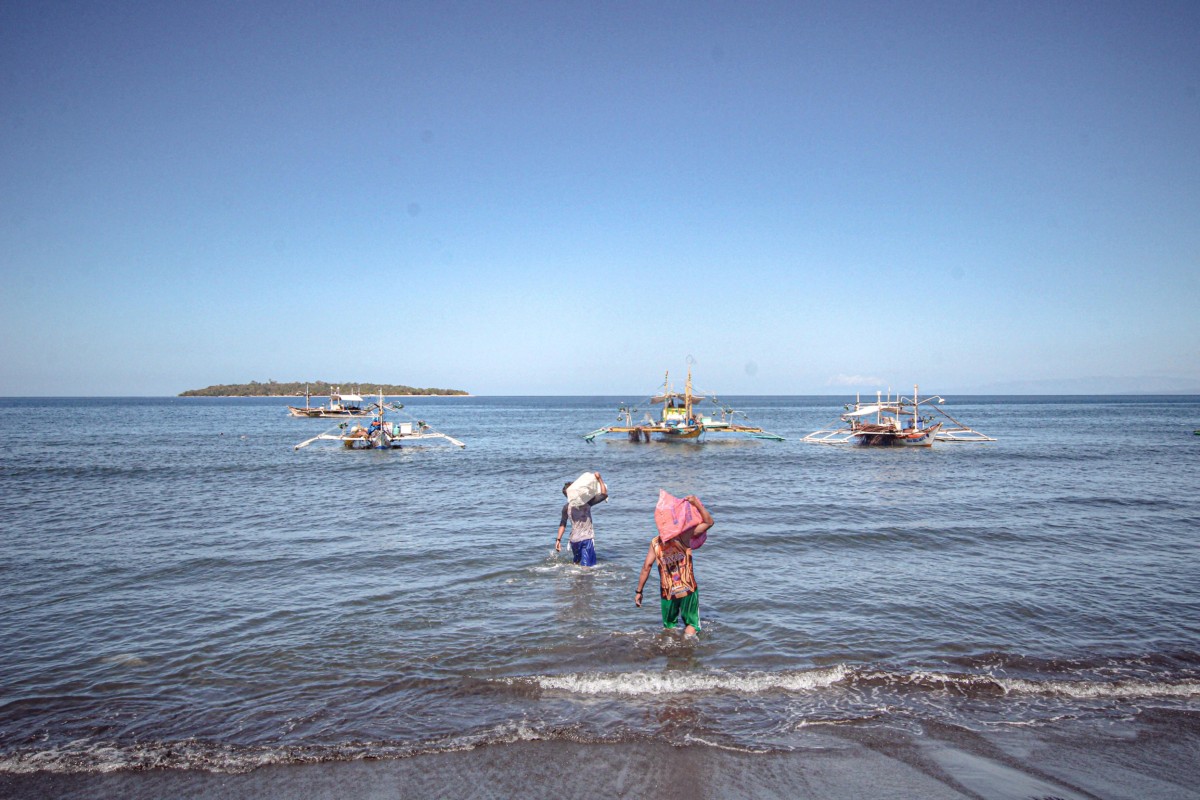
Fishermen carry ice back to their boats, sat off the coast of Sablayan, Mindoro. The farmers and fisherfolk of the Philippines wait eagerly for the pandemic to pass. For now, what they need is support for their livelihoods. Photograph © Alo Lantin / WWF-Philippines
“I hope things don’t get too bad, but… Well, as things stand, it looks like we really have a problem on our hands,” concluded Hinay, with a solemn nod at the outlook of the Philippines.
The COVID-19 pandemic has pushed our food system to the very edge. Mass hunger waits on the horizon – but from the safety of our homes, there is still a lot that we can do. Follow WWF-Philippines, and find out what you can do to help #ChangeTheEnding of our current crisis.
For more information, please contact:
Mr. Monci Hinay
Sustainable Food Systems Project Manager
mhinay@wwf.org.ph
Ms. Joann Binondo
Sustainable Tuna Partnerships Project Manager
jbinondo@wwf.org.ph
For media arrangements, please contact:
Ms. Pam Luber
Integrated Communications Manager
pluber@wwf.org.ph
